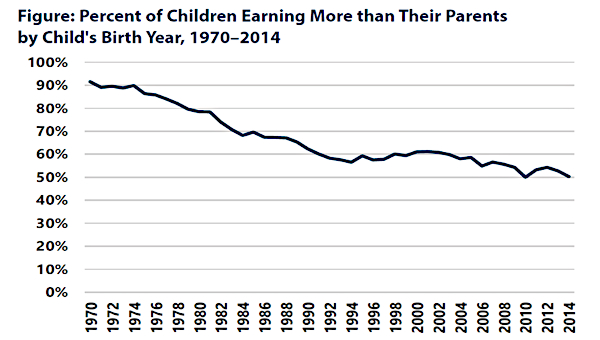A Triumph of the Radical Left in Greece
A Message to Europe
The recent electoral results in Greece was a serious blow to the governments of Angela Merkel and Nicolas Sarkozy [referred collectively as ‘Merkozy’], as well as to all those arrogant neoliberal parties, politicians, analysts, EU, ECB and IMF officials who thought that the European people can suffer passively and for an indefinite period the extreme austerity policies of neoliberal orthodoxy, which supposedly aim to an exit from the capitalist crisis in Europe.
Although resistance in the streets and hopeful results in the ballot boxes have happened in almost all EU countries since the crisis began, it is interesting that the clearest message against neoliberalism in the EU came from a small country of the European South. The people of the most notorious of the PIIGS, instead of accepting either to willingly go or forcibly be drawn to the slaughter house, decided to revolt by voting massively against the centre-left Panhellenic Socialist Movement (PASOK) and the centre-right New Democracy (ND), the two parties which, together with the extreme right Popular Orthodox Rally (LAOS) had signed the Memorandum of shame with the ‘Troika’ (EU, ECB and IMF) and participated recently in the Papademos’ government.

Alexis Tsipras, president of Synaspismos and head of the SYRIZA parliamentary group.
One could legitimately claim that the election results were due exclusively to the fact that the crisis and the policies for a way out of it destroyed the traditional ties connecting the lower and middle strata of the Greek society with PASOK and ND, creating a rupture to the powerful bi-party political system which dominated the country since the fall of the dictatorship in 1974. In fact, within the two years that passed since the bailout package agreed between the Greek government(s) and the ‘Troika,’ a large number of PASOK and ND deputies resigned, became independent, created other political parties or entered other parties or coalitions.
Resistance in the Streets
However, neither the rupture of the political system happened automatically nor the increase in the power of the radical Left was a ‘natural’ consequence of the crisis. Early elections were proclaimed not out of the free will either of the collapsing Greek political system or of Merkozy, Lagarde, Trichet/Draghi or Barroso – in fact, the wish of this ‘Holy Alliance’ and of the ‘markets’ was that the three-party government under the unelected technocrat Papademos remained in office for two more years, just like Mario Monti in Italy. The most important reason why the country went to the polls should be traced to the resistance of the Greek people mainly in the streets, but also in the workplaces (through the movement of the squares, the strikes and mass demonstrations, civil disobedience like the ‘no pay movement,’ the jeering of mainstream politicians wherever they appeared in public etc).
At the same time, the success of the radical Left in the elections was not a linear function of the bad economic situation. History has taught us that unemployment, poverty and generally the worsening of economic conditions do not necessarily create a favourable political environment for the Left. The situation in the countries in Central and Eastern Europe after the demise of the so called ‘really existing Socialism’ is a painful example.
The unexpectedly high electoral percentage of the radical Left can, to a large extent, be attributed to good political party strategies: a) the establishment and maintenance of the Coalition of the Radical Left (SYRIZA), a difficult alliance of Synaspismos with smaller parties and groups mostly of the extreme Left, b) the alliance of SYRIZA with groups or individuals coming from PASOK who had a large appeal to the general public (in fact the name of the electoral list was SYRIZA-Unitary Social Front), c) to the appeal made to all forces of the Left, mainly to the Communist Party of Greece (KKE) and the Democratic Left (DIMAR) – the party which was created two years ago after the split of Synaspismos – to forge an alliance which could govern the country – an extraordinary ambition for the communist, post-communist, renovating and radical Left in Greece. In a country where personalities play a crucial role in politics, one of the reasons for the success of SYRIZA should also be attributed to the personality of its leader Alexis Tsipras, a charismatic and popular young politician.
Coming to the actual election results, the Coalition of the Radical Left (SYRIZA) achieved a percentage as high as 16.8%, overtaking PASOK which lost 30% of its power and collapsed from 43.92% and 160 seats in 2009, to 13.18% and 41 seats in 2012. New Democracy fell from 33.47% and 91 deputies to 18.85%, but due to an incredibly unjust electoral law now has 108 deputies (getting a scandalous bonus of 50 seats – out of a total of 300 – which go to the first party, independently of its percentage), while the Communist Party of Greece (KKE) marginally increased its power from 7.5% to 8.5%, loosing for the first time its dominant position within the broader Left. LAOS, the party of the extreme Right which participated in the recent Papademos coalition government, didn’t manage to enter the parliament and the same happened with the Ecologists-Greens, a member of the European Greens. The rest of the seats are occupied by the party of the Independent Greeks (a nationalist, xenophobic party created by a split of New Democracy, which denounces the ‘Memorandum’ with the ‘Troika’ – 10.6%), the Democratic Left (the party created in 2010 from the split of Synaspismos – 6.11%) and the fascist group of Golden Dawn, which managed to gather 7% of the votes and 21 seats in the Greek Parliament.
Fragmented Left in Greece
Although SYRIZA was certainly the big winner of the elections, one should not miss another very important fact. Ignoring the funny claim of KKE that they are communists and not leftists (!), the combined result of the admittedly fragmented Left in Greece is the biggest in recent political history, overshooting 30% and thus breaking the record of the old party of United Democratic Left (EDA), which in 1958 (9 years after the end of the civil war) managed to reach 25 per cent of the vote creating a shiver to the then ‘free world.’
Although it is too early for a detailed analysis of the radical Left vote, we think that it is useful to refer to some of its important qualitative characteristics: SYRIZA came first among young voters, as well as among voters up to 55 years old. It prevailed in the big urban centers, where the economic and social crisis is particularly acute. It even managed to represent big parts of the popular strata in the poor neighbourhoods of Athens and other big cities, where traditionally its penetration had been low.
Allow me to close this first note on the Greek election results with two final remarks:
First, one of the reasons why the victory of SYRIZA is such important development on a European scale is due to the fact that, although one could expect that the two – former – big parties would lose power because of popular dissatisfaction, the political force which would benefit from the delegitimization of the political system and the mounting of social unrest was not obvious. Nationalist, xenophobic and even fascist groups were racing to this end, propelling arguments for “a strong, pure and independent country.” Fears and blackmails for the dangers of an exit from the Eurozone – that would amount to a complete collapse of the country’s economy – were consistently spread by the political elites, inside and outside the country, as well as by the mainstream media. At the same time, the Left remained fragmented, with the Communist Party refusing to engage in any kind of dialogue and the Party of the Democratic Left (DIMAR) failing to define the limits of its juxtaposition. This is why the victory of SYRIZA was so important. But there was also one additional reason that made all of us proud for being members or supporters of Synaspismos and the other groups of this political alliance. Despite intensive pressures from almost all parts of the political spectrum and the media, SYRIZA did not retreat from its values of defending immigrants – opposing clearly the, not so unpopular, establishment of concentration camps for their containment, the first of which incidentally opened just a few days before the elections – and of arguing for the protection of human rights in a period where society was open to mass propaganda of this type.
European Left
The electoral results in Greece are important not only for this country, but for Europe as whole. Now, it is more evident than ever how interdependent the European countries are, since developments even in a small country of the Southern periphery can create a ‘butterfly effect,’ so strong that it can shake European decision-making in its core. This is the reason why Synaspismos never accepted the dilemma that Greece should either accept the present political and economic framework of the EU (as supported by the PASOK and ND) or voluntarily get out of the Union – a demand put forward by KKE, but also some groups of SYRIZA. On the contrary, we believe that struggles and disobedience at the national level should be combined by coordination at the European level for the refoundation of Europe, which is also the aim of the Party of the European Left. EU will either change or stop existing.
In our hard times, victories of the movements and the radical Left in one European country can positively influence the political and social struggles in another. The victory of SYRIZA in Greece belongs also to the indignant movements around Europe, the victories of the Spanish strikers, the success of comrades of the French Communist Party and the Front de Gauche in the recent French elections. We were inspired by them and had the conscious feeling that we were returning this inspiration. In this framework, we will never forget the actual presence of representatives of the parties of the European Left in our rallies and the moral support we got from comrades all over Europe.
Despite our victory, we are well aware that no victory can be taken for granted. In our struggle we have to face, on a daily basis, two big enemies: a) the political forces of the establishment who want to subjugate the peoples of Europe to their austerity policies and b) the forces of the reactionary radicalism, the extreme and fascist Right, the National Front in France, the Golden Dawn in Greece and their allies in other European countries.
The struggle goes on! •
This article first appeared at transform!europe.





